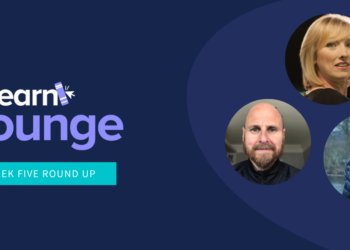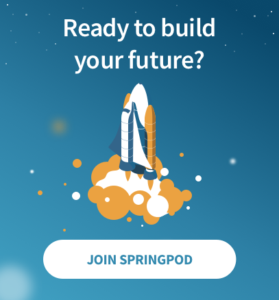It has become widely documented, particularly recently, that within the STEM industries girls are hugely underrepresented, making up only 24% of the workforce. This is something we, at Springpod, have taken to the keyboard to discuss, both in an article and our upcoming e-book. This growing conversation both in and outside the industry is pivotal in the need to diversify STEM – but it’s far from the only conversation that needs to be had. By having a quick research of LGBT representation within science, technology, engineering and maths, it becomes abundantly clear that the lack of access into the STEM industries that women face is also present for those within the LGBT community.
The world’s perspective on STEM – constructed through media, primary socialisation and other forces – is often that “careers in science are not traditional tracks that LGBT (lesbian, gay, bisexual and transgender) people pursue.” The STEM world is often not perceived to be ‘designed’ for those outside of white heterosexuality, a damaging viewpoint when “scientists from diverse backgrounds, including women, black and minority ethnic and LGBT scientists, all contribute to science in a unique way. And this should be celebrated.”
As opposed to the struggles of women and people of colour in STEM, LGBT is a more hidden characteristic and thus becomes a slightly more complex discussion. As well as putting up initial barriers to LGBT people because of the industry’s heterosexual and masculinised characterisation, it’s also a topic that can easily be ignored and hidden even when LGBT operate and work within the industry, where LGBT scientists “prefer not to discuss it” and “struggle to openly be themselves.” It thus becomes a two-fold problem where the industry in its nature arguably excludes LGBT people from taking part in the industries, alongside easily ignoring LGBT status when within the industry.
It’s a busy, interesting and necessary discussion – a discussion we have only briefly skimmed over. But despite this lack of diversity and inclusion of LGBT people in the STEM world, there are still some members of the LGBT community that have been there, done that and admirably broken down the barrier. To celebrate Pride 2018, we thought that we’d list some of our favourite LGBT people in the STEM world that inspire us every day.
Alan Turing
Alan Turing lived a relatively short life between the years of 1912 and 1954, but the impact he left on the world was nothing short of astronomical. Turing was a mathematician, logician and cryptographer, playing a huge part in cracking intercepted coded messages that eventually helped defeat the Nazis in the Second World War. Many consider him to be the father of modern computer science, where he designed and built some of the earliest electronic, digital computers. Later in his life, Turing was convicted of acts of gross indecency and was forced to undertake hormone therapy (the other option imprisonment) which led to bodily complications. The motive behind his death was not conclusive, with both suicide and the work of the British secret service theories thrown around. You can catch a famous depiction of Turing by watching The Imitation Game.
Svante Pääbo
Born in Stokholm, Pääbo was very much socialised within a STEM-affluent family, with his father a biochemist that shared the Nobel Prize in Physiology or Medicine in 1982. Pääbo himself has become a huge figure in STEM where he is a Biologist specialising in evolutionary genetics and known as one of the founders of paleogenetics. He is also bisexual and his relationships with men and women is something he includes in his writing. We reached out to Beth Montague-Hellen from LGBT STEM to ask who her favourite STEM LGBT icon, and she explained why Pääbo is hers:
“My favourite LGBT STEM icon is Svante Pääbo – I love the way he talks about being bisexual really casually in his autobiography Neanderthal Man: In Search of Lost Genomes. It’s everything I’ve always been working towards with LGBT visibility. It’s not having to hide it, not being shy about telling people your sexuality, but it just being another factor in your life – you’re a scientist, you’re LGBT, they’re all just facets of who you are.”
Ben Barres
Differing a lot from the family of Pääbo, Barres was brought up in New Jersey with a salesman for a father and a homemaker for a mum. He, however, ended up having a huge impact in the STEM world just like Pääbo. After getting a degree in Biology, he then moved on to get a Medical degree and then finally a Doctorate in Neurobiology. His main research focused on the interaction between neurons and glial cells in the nervous system. After transitioning from a woman to a man, Barrers shared the sexism that he had experienced as a woman in STEM before transitioning, comparing his experiences as a female scientist and a male scientist. We had a chat with Dr Alfredo Carpineti from Pride in STEM, who spoke fondly of Barres:
“My favourite LGBT STEM icon is Ben Barres. As a neuroscientist he was incredibly talented and prolific, and he made such an impact in and outside academia. He passed away only a few months ago, and tributes to him say how he left behind a towering legacy of goodness and how much of a champion for LGBTQ+ people in STEM he was. We should all try and be more like him.”
Tim Cook
One of the most powerful men alive right now, Apple CEO Tim Cook, after getting a Bachelor of Science in Industrial Engineering and a Master of Business Administration under his belt, began in IBM’s personal computer business before dipping his toe in a few other places. It was in 1998 that he joined Apple as Senior Vice President, becoming CEO in 2011 when Steve Jobs resigned. Cook was a relatively private LGBT figure in the world of STEM, but has more recently started openly talking about his sexuality as well as LGBT rights. In the past few years, Cook has said “I don’t consider myself an activist, but I realise how much I’ve benefited from the sacrifice of others.” In 2015, he led around 8,000 Apple employees in San Francisco’s annual gay pride parade. He also, in the same year, received the Human Rights Campaign’s Visibility Award for LGBT efforts.
Elena Rodriguez-Falcon
Born in Mexico, Rodriguez-Falcon began her studies there in Mechanical Engineering, which she then followed with a master’s degree in Mechanical Engineering and Industrial Management. After working in the industry in Mexico, she then moved to the UK and began working at the University of Sheffield. During her time at the university, she became a professor as well as holding the role of Director of Women in Engineering. The work she did in this post led her to be presented with the Women into Science and Engineering award in 2014. In 2018, Rodriguez-Falcon joined the New Modern in Technology and Engineering – due to open in 2020 – as its provost and chief academic officer. Rodriguez-Falcon is openly gay and has been an influential voice in the community, where she was shortlisted for the Barbara Burford Honour, which recognises LGBT people within STEM. Amongst many other achievements and activity for the LGBT community, she has written a piece in The Guardian, all about the experience of LGBT in STEM, and also held a keynote speech on the topic which you can watch below.
Sally Ride
Ride was born in Los Angeles, where as well as having an interest in science, she was a nationally ranked tennis player. Ride graduated with a bachelor’s degree in English and Physics before achieving a Master’s and Phd in Physics. After answering an advert in the Standford student newspaper seeking people for the space programme, she joined NASA in 1978. Ride served as the ground-based capsule communicator for the second and third space shuttle flight. She became the first American woman in space but suffered from sexism from the media before her involvement. After NASA, Ride did a lot, including co-writing books on space to encourage children to study science with Tan O’Shaughnessy, who was later revealed to be her partner. Ride was a very private woman but her being part of the LGBT community was confirmed by her sister and so Sally Ride is the first known LGBT astronaut.
Polly Arnold
Arnold is a Professor of Chemistry at the University of Edinburgh, where her research specialises in exploratory synthetic chemistry, most particularly in making complexes that explore structure and bonding in early transition metal. Throughout her impactful career, Arnold has received recognition through being awarded the Rosalind Franklin award as well as getting an OBE for her work in chemistry and for what she has done for women in STEM. Arnold is one of only two living female scientists on Wikipedia’s list of LGBT scientists in the UK and is openly bisexual. When speaking about her sexuality, Arnold has said:
“[My childhood] engendered a determination to not conform, and a pride in being different, which has helped me be comfortable with being queer, and to continue with science as a career. It has also no doubt helped shape the sort of research goals I still set now. I find it empowering to see this sort of precise data about my behaviours set out. These tests are so quick and easy, yet thought-provoking.”
David Smith
After graduating from the University of Oxford and then completing his Phd in Oxford, Smith began his career as a lecturer before becoming a professor at the University of York. His research is on nanochemistry and he is known for using YouTube as a platform dedicated to chemistry education. Smith is openly gay and is an active voice of the LGBT community within the world of STEM. Not only does he write about the topic, but he speaks publicly at events and shares his experience as a gay scientist. As a result, he has been nominated for awards and his work on diversity has been widely recognised.
– – – –
What a set of inspirational people! This list is far from exclusive, and there are more LGBT people in the world that are working in STEM and continuing to help improve the position of LGBT people in the industry. Alongside these icons are organisations such as Pride in STEM, House of STEM and InterEngineering that are working hard for the cause. The trio have also collectively announced the first International Day of LGBT+ people in STEM, taking place on the 5th July. The fight is far from over, but through these LGBT people and organisations, we’re beginning the journey to a more diverse and exciting STEM world.







